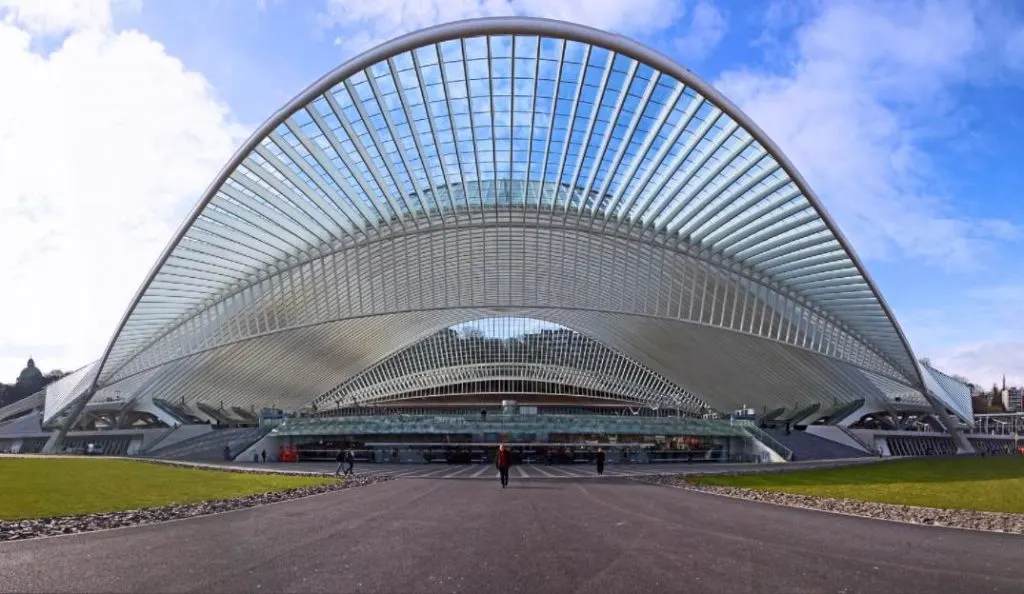Belgium is a small and densely populated country in the center of Europe. Nearly 11.5 million people live in this country which you can pass by in just a few hours.
That’s quite astonishing since the Walloon Region in the south is for the most part covered with dense forests.
The other two regions that make up the country are the Flanders Region in the North and the Brussels Capital Region in the heart of the country.
The largest cities in Belgium such as Brussels, Antwerp, and Ghent, are filled with historic buildings, and Bruges is one of the most picturesque medieval cities you’ll ever come across.
In this post, you’ll discover some of the most famous buildings in Belgium, a country that has an extremely rich history and plenty of tourist attractions that you simply have to visit once in your life.
1. Grand Place buildings
If you happen to visit Belgium, then the month of August would be the best time to visit the capital city of the country, Brussels.
That’s because that is the time of the year that the Grand Place, an already magnificent square, gets covered with an amazing flower carpet, one of the most astounding sights in a city you’ll ever come across.
The setting of this magnificent flower carpet is the location of the most famous landmark in the city, a square that is lined by some of the city’s most iconic buildings.
These include structures such as the City Hall and the Brussels City Museum, located within the equally impressive King’s House or Breadhouse.

This in combination with the fabulous Baroque buildings called “guildhalls” makes this a must-visit attraction in Belgium.
Official website: Grand Place Brussels
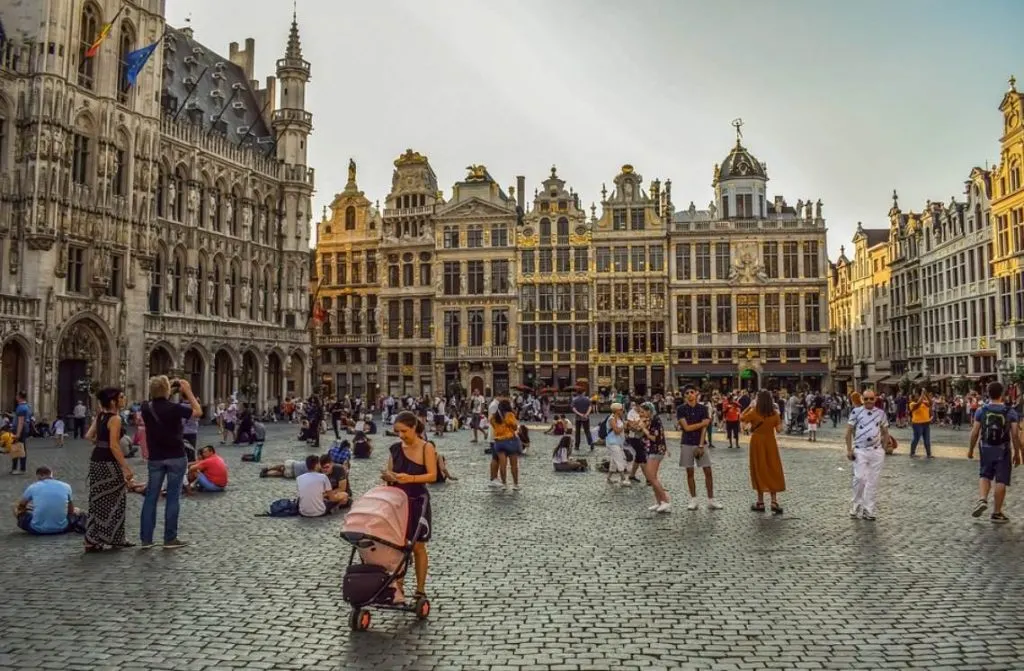
2. Gravensteen
It’s not common that you all around in the city and you’ll come across a medieval castle.
Well, if you walk around in the Flemish city of Ghent, this happens as this is the location of one of the most iconic castles in Europe!
The Gravensteen translates to the “Castle of the Counts” and the version of the castle we see today was completed in the year 1180.
It served as the official residence of the Counts of Flanders until the year 1353 and had quite a shaky history after that, serving many other purposes such as a court, prison, mint, and even a cotton factory.
The castle was completely restored to its former glory between 1893 and 1903 and is now one of the most popular buildings in Belgium.
Official website: Castle of the Counts
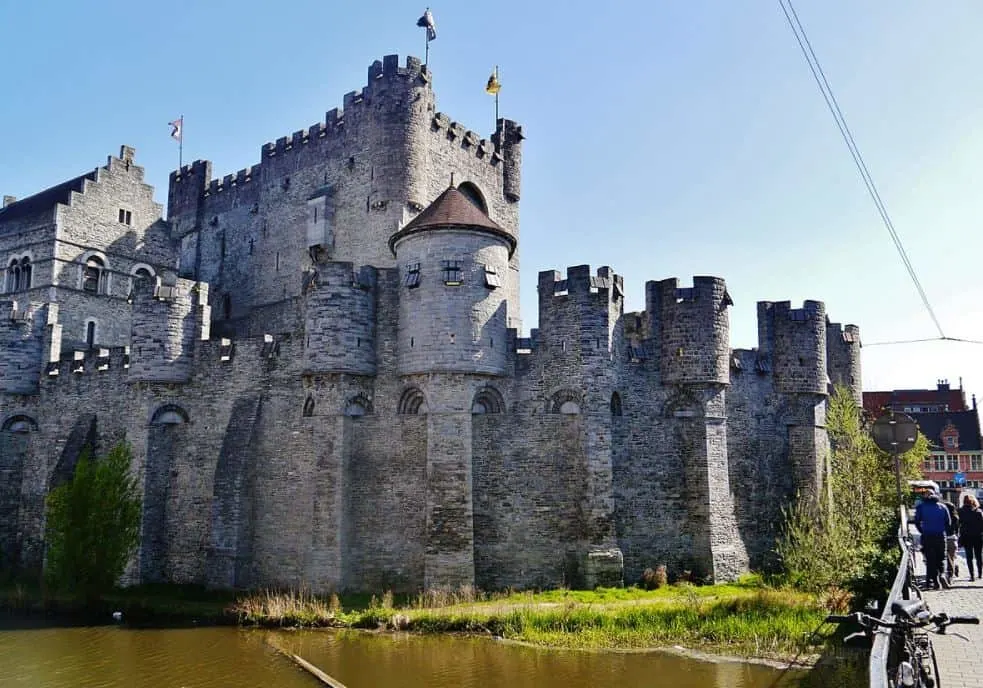
3. Cathedral of Our Lady
The Cathedral of Our Lady, locally known as the “Onze-Lieve-Vrouwekathedraal,” is the main cathedral in Antwerp, the second-largest city in Belgium.
It’s considered to be one of the most iconic examples of Gothic architecture and was completed between 1352 and 1521.
Unfortunately, it was never completed as it was supposed to have two towers instead of just the one we see today.
The tower of the church reaches a height of 123 meters (404 feet) which makes it the tallest church in Benelux (Belgium, Netherlands, and Luxembourg).
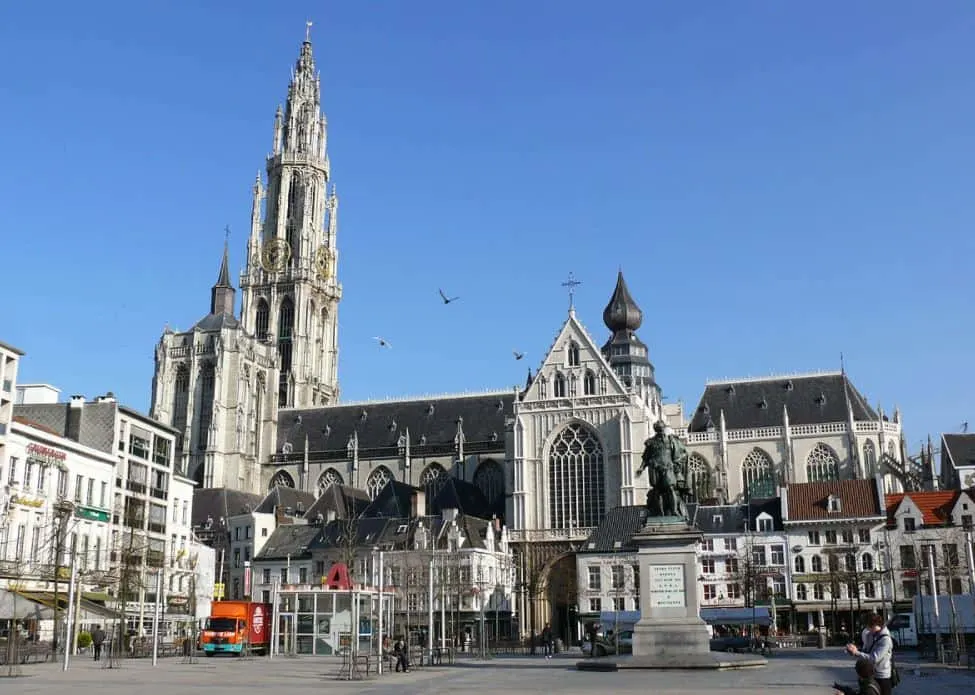
If you plan to visit Antwerp, make sure to enter this church because it features some of the most amazing works of art ever created.
Some of these are “The Raising of the Cross,” “The Assumption of the Virgin Mary,” and “The Descent from the Cross,” all three created by Baroque master Peter Paul Rubens (1577-1640).
Official website: De Kathedraal
4. Atomium
If Paris has the Eiffel Tower, then Brussels has the Atomium.
Built for the same purpose as the iconic tower in the capital of France, the Atomium was built for the 1958 Brussels World Fair.
The structure represents an atom and consists of 9 huge stainless steel-clad spheres that have a diameter of 18 meters (59 feet) each.
The structure reaches a total height of 102 meters (335 feet) and the top sphere provides some of the most amazing views of the city possible.
The tubes that connect the spheres allow visitors to move from one sphere to the other as 5 of the 9 spheres can be accessed, each with a different purpose.
The Atomium also houses a museum and is one of the most famous buildings in Belgium.
Official website: The Atomium
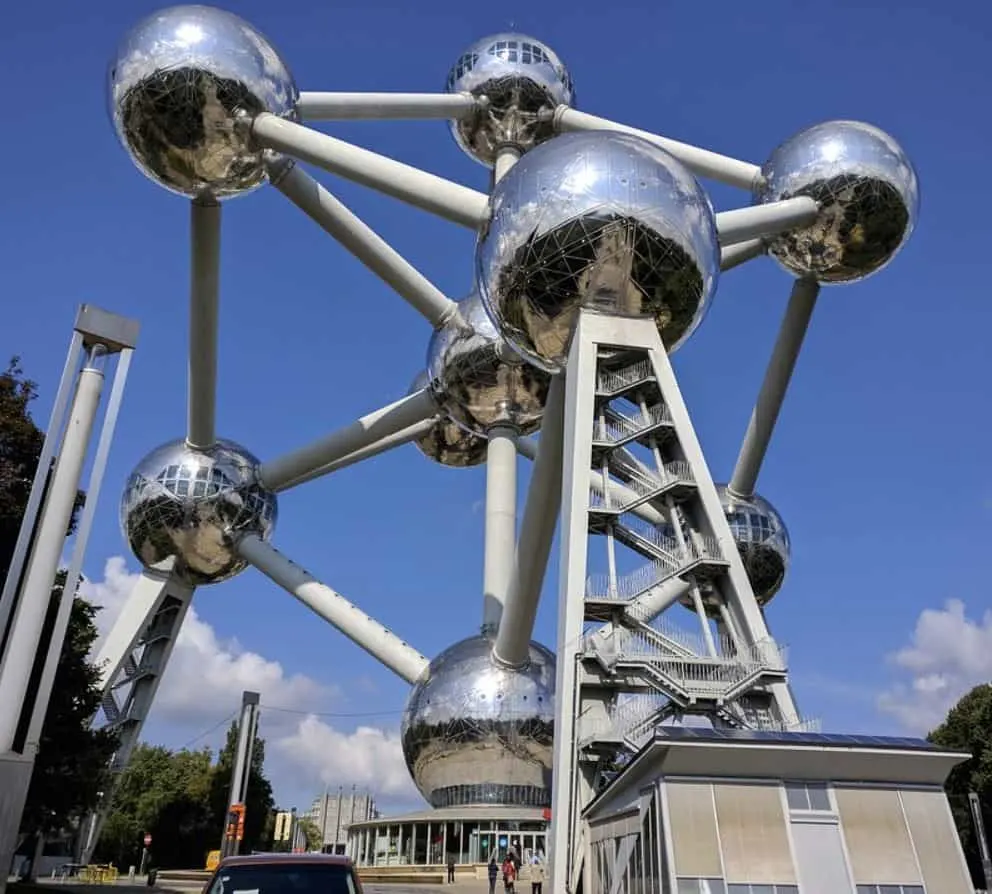
5. Canals of Bruges
Bruges is the capital city of the West-Flanders province of Belgium, and even though it’s far from being the biggest city in the country, it’s a must-go location when you plan to visit Belgium.
The unique medieval atmosphere of the historical center of the city is unique in many ways, and the canals of Bruges have resulted in the city being referred to as the “Venice of the North.”
The Golden Age of the city was between the 12th and 15th centuries, a period in history in which Bruges was one of the richest cities in Europe.
The city is full of historic buildings which have resulted in the entire city being listed as a UNESCO World Heritage Site.
One of the most popular ways to discover this picturesque medieval city is by taking a boat ride on the canals of Bruges, an experience that allows you to discover some of the most famous medieval buildings in Belgium.
Official website: Canals of Bruges
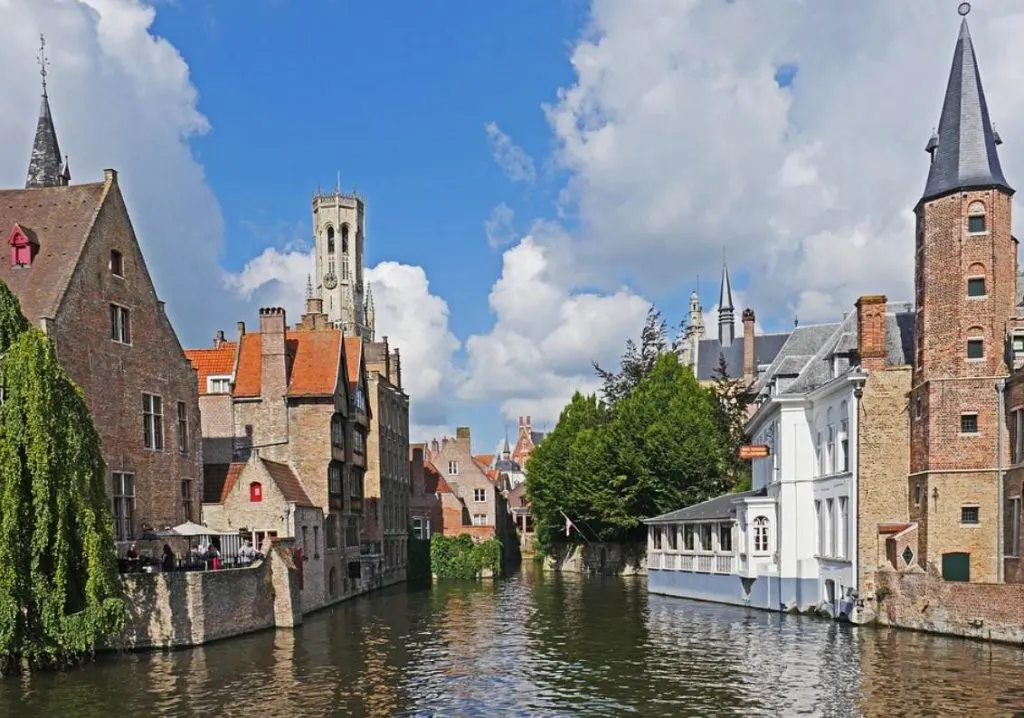
6. Leuven Town Hall
The Leuven Town Hall is the most famous building in the Belgian city of Leuven which is located just east of Brussels. It’s considered to be the epitome of Brabantine Gothic architecture.
This means pointed windows and spires and amazing ornamentations such as statues and reliefs. The building was completed between 1448 and 1469 and was originally known as the “Voirste Huys” which translates to “Front House.”
This means that it was part of a much larger complex of buildings that served as the administrative center of the city. The building was renovated several times throughout its history and still looks magnificent today.
Official website: Leuven Town Hall
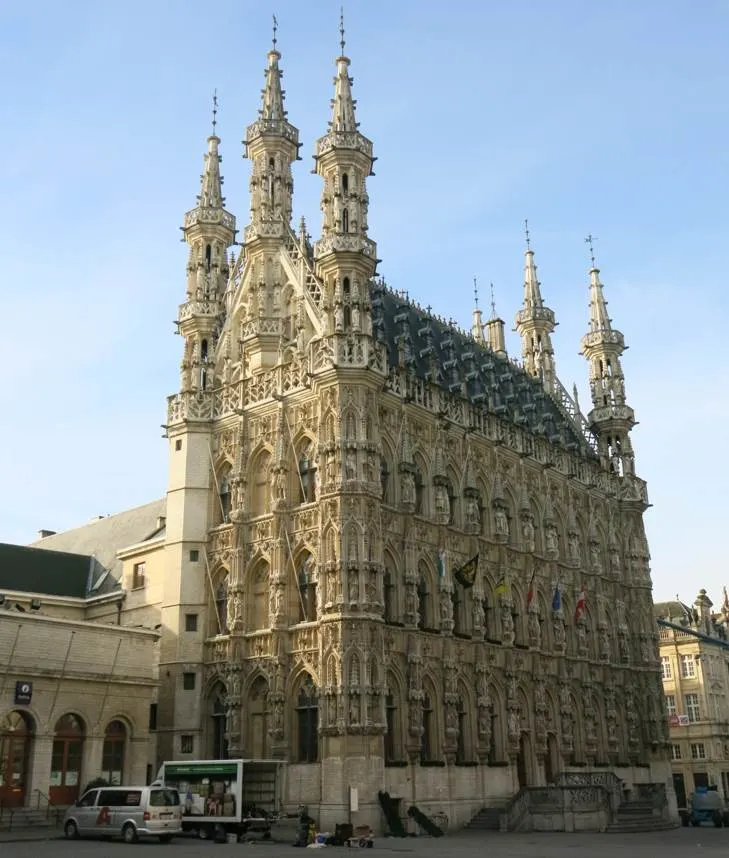
7. Ypres Cloth Hall
The Ypres Cloth Hall is another famous medieval building in Belgium located in the city of Ypres in the western part of the country. The construction of this commercial building started in the 13th century and was completed in the year 1304.
The building served as the main warehouse for the prosperous cloth industry in Ypres during the Middle Ages and was one of the largest of its kind in Europe at the time.
It was severely damaged during the devastation of Ypres in World War I and was completely rebuilt to its original state between 1933 and 1967.
The building has a length of 125 meters (410 feet) and features a belfry in the center that stands 70 meters (230 feet) tall. Today, it houses the Flanders Fields Museum and it was inscribed as a UNESCO World Heritage site in 1999.
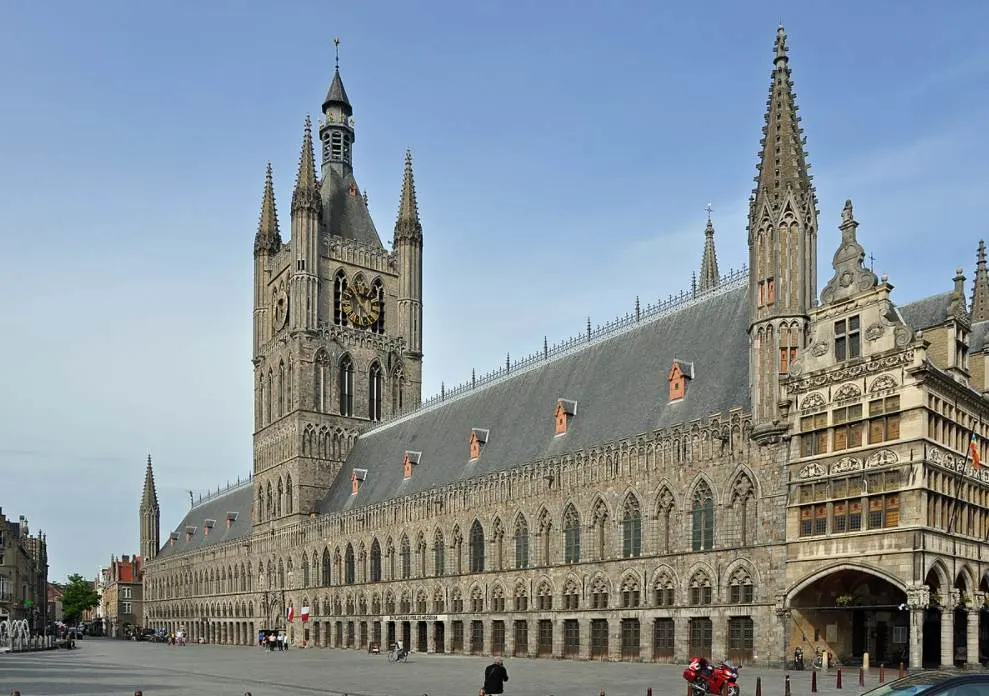
8. Port Authority Building
The Port Authority Building is also known as the “Port House” and is one of the most distinctive buildings in Belgium. It’s located near “Het Eilandje,” an area in the city of Antwerp near the city’s huge port.
The building was designed by renowned Iraqi-British architect Zaha Hadid (1950-2016) and was completed between 2009 and 2016. It’s a remarkable building because it’s the only government building that Hadid ever designed.
The Neo-Futuristic structure was completed the year that the architect died and the square on which it is located was named in her honor. The modern structure is integrated into an existing fire station, quite a remarkable architectural feature.
Official website: Port House
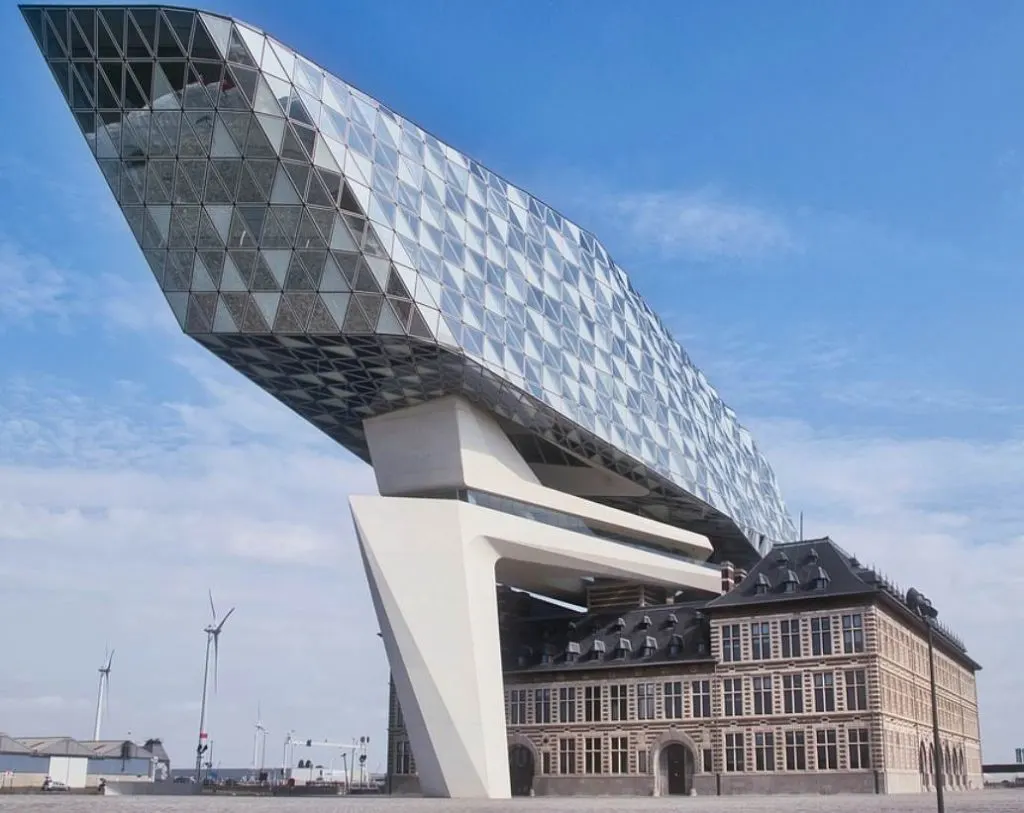
9. Citadel of Dinant
The Citadel of Dinant is a huge fortress that is located in the Belgian city of Dinant in the province of Namur in the Walloon region of the country.
The original fortification on the “Dinant Rock” was built in the year 1051 and the current building was completed in 1815. It majestically overlooks the city of Dinant and the nearby Meuse River, making it an extremely strategic location.
It’s one of the multiple fortresses that were built in the region in a similar location, but the most impressive one. Others include the Citadels of Huy, Liège, and Namur.
Today, the Citadel of Dinant is a popular tourist attraction that is open to the public. It can be reached by cable cars and boat trips on the nearby river are also a popular way to discover this beautiful region.
Official website: Dinant Citadel
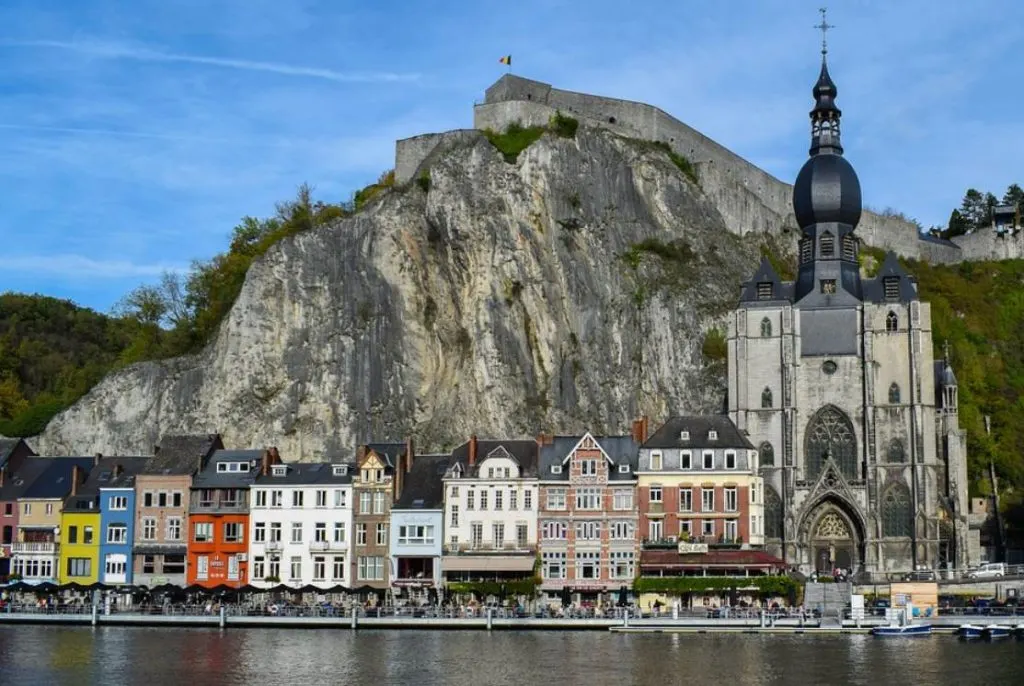
10. Liege Guillemins
Liège Guillemins is the main train station in Liège, a city with the third-largest metropolitan area in Belgium. The first train station on this location was opened in 1838, just a couple of years before the first railways in Belgium were built.
The original train station was replaced twice, once by a Beaux-Arts building in the early 20th century and again by a heavily criticized International-style building in 1958.
The modern building was designed by renowned Spanish architect Santiago Calatrava and was completed in 2009.
It turned out to be one of the most astounding train stations in Europe, especially because of the amazing arched roof that has a length of 160 meters (524 feet) and a maximum height of 32 meters (104 feet).
Official website: Liège Guillemins
